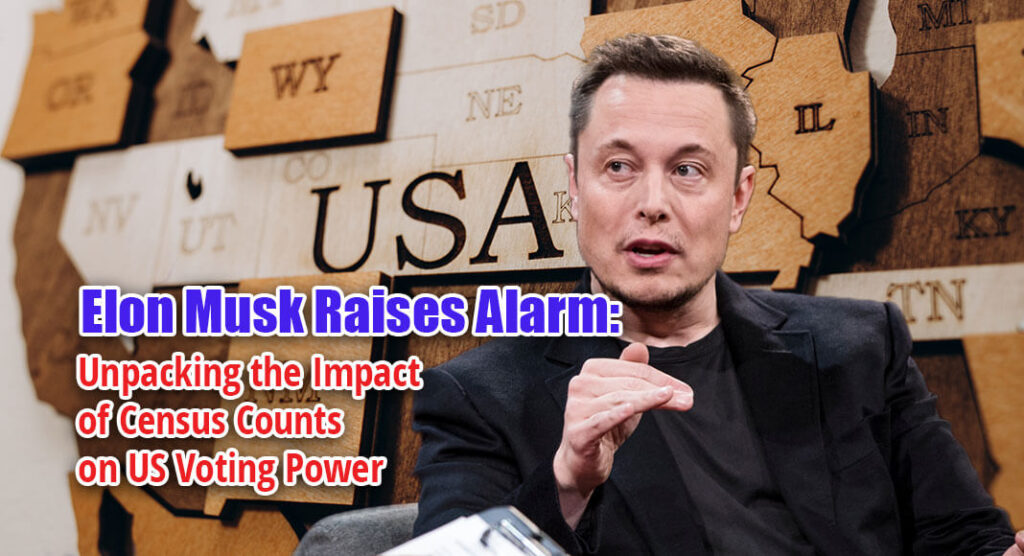
Texas Border Business
In a posting through “X,” formerly Twitter, Elon Musk posted a striking claim that has stirred considerable debate and discussion among Americans. According to Musk, many Americans are unaware of a significant detail in how the US Census operates—a detail that potentially tilts the balance of political power. Musk’s assertion revolves around the Census’s method of counting individuals within a district to determine voting power, including all people, irrespective of their citizenship status.
As Musk points out, this practice has substantial implications for the apportionment of congressional seats and the allocation of electoral college votes. He highlights a recent decision by Senate Democrats, who reportedly voted unanimously against an amendment to exclude non-citizens from these counts. As suggested, the rationale behind this voting pattern is that the inclusion of non-citizens predominantly benefits states with a Democratic majority. Musk argues that this could shift the political landscape, influencing the House of Representatives and the Presidential vote by approximately 5% in favor of the Democratic Party—a margin that could significantly alter the balance of power.
Further emphasizing the political dimensions of this issue, Musk criticizes the Biden administration for its immigration policies, suggesting a strategic motive behind what he describes as record levels of undocumented immigrants entering the US, coupled with a reduction in deportations. Musk says these actions are not mere coincidences but deliberate strategies to influence electoral outcomes.
His comments emphasize a contentious issue at the heart of American democracy: The principles guiding representation and apportionment in electoral processes. Musk’s debate touches on fundamental questions about who should be counted in the census and for what purposes. It challenges the existing framework and calls for a broader public discourse on the implications of these practices for democratic fairness and equity.
As this discussion unfolds, it becomes clear that the matter is not just about numbers or counting methods. It’s about the underlying values that govern democratic representation and the integrity of electoral processes. Whether or not one agrees with Musk’s assertions, this debate warrants careful consideration and dialogue among policymakers, scholars, and the general public to ensure that the mechanisms of democracy align with the principles of fairness and representation for all individuals residing within its borders.











